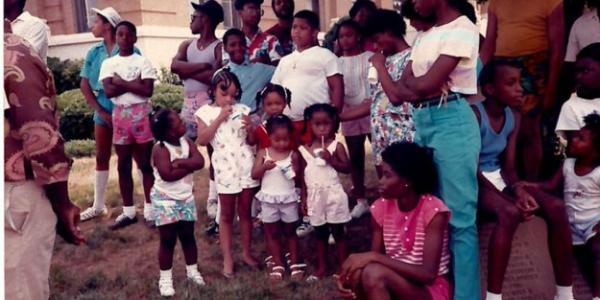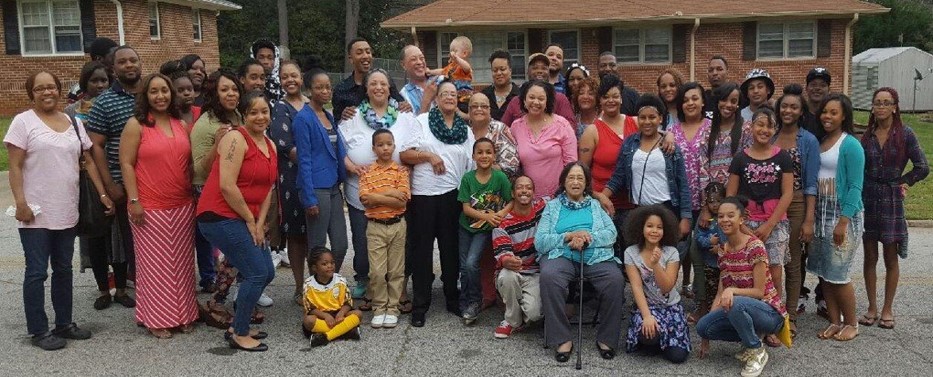Juneteenth: A Joyous Journey of Liberation

As an African American woman raised in the South, Juneteenth has always held a special place in my heart and my memory. While the origins of this commemoration date back to June 19, 1865, when the last enslaved people in Texas learned they were free, the ways it has been celebrated reflect the diverse journeys and resilience of Black people across America.
My earliest memories are not of a single day in June, but rather a weekend-long “Jubilee” of family gatherings and homecomings held each Memorial Day weekend among African Americans to celebrate what was known as Emancipation Day. Growing up in Decatur, Georgia, I vividly recall my parents packing us up in our family station wagon and making the two-hour drive to visit my grandparents, cousins, aunts, and uncles in a rural town called Thomaston, Georgia. From Friday through Sunday, it was a nonstop party—a respite from the harsh realities of racism, scarcity of resources, and oppression that my community too often faced.

In addition to the vibrant fellowship, I recall listening to guest speakers talk about the history of Black people in this town, grooving and dancing to local Black music artists, and enjoying the hallmarks of Black southern cuisine. One of my favorite events was the Saturday morning parade, a showcase of Black excellence, pride, history, and talents. It was the first time I can remember seeing Black men, women and children on horses, a sight that filled me with immense wonder and pride as a young child. In those moments, there were no worries about lacking food, health care, clothing, shelter, or running water. It was simply an abundance of joy to be celebrated freely as a people.
It wasn’t until high school that the connection between Juneteenth and our Jubilee started to become clear. As part of a persuasive writing assignment, I researched the origins of Juneteenth and did an oral history project with my family. I learned that the festive Jubilee weekend I was raised with was memorialized when the news of emancipation finally made its way to parts of Georgia in late May, weeks after Robert E. Lee’s surrender.
That school project was the spark that ignited a lifelong passion for unearthing the authentic stories and resilience of my ancestors. It propelled me to continue digging into the roots of Black history and traditions throughout college and beyond.
One of the most profound realizations has been tracing how the women in my family were all ”firsts” in breaking barriers. My great-great-grandmother, Nettie, whose name I’ve only recently learned, shattered glass ceilings in ways I may never fully know. What I do know is that she paved the way for the generations after her: My great-grandmother, Addie Irene, was the first Black woman to become a chef and restaurateur in her town. Her daughter, my Grandmother Bertha, became the first Black woman to integrate and lead the hospitality division of the local hospital. Her daughter—my mother. Cora—was the first Black woman to integrate the business executive suite of the same local hospital.
While my family's Juneteenth celebrations predated the official date, I recognize there are complexities and inaccuracies around when and how emancipation reached the enslaved. The truth is that federal troops had to enforce the Confederates’ compliance even after the Civil War’s end. So the delayed journey to freedom was, in many ways, a horrific hurdle created by oppressors unwilling to let go.
Nonetheless, Juneteenth represents the joyous perseverance to keep building the realization of liberty, self-determination, and justice. The fact that it is now a federal holiday holds even deeper significance for Black Americans. Not only do we have a designated day to pause and rejoice in the spirit of our ancestors who endured unimaginable atrocities, but companies are also compelled to honor that history. It creates more pathways for truth telling, healing, and building traditions that center our voices and experiences.
For our early childhood education community, Juneteenth offers a beautiful opportunity to engage families and children in developmentally appropriate ways. We can share stories, histories, and the journeys that have culminated in these jubilant celebrations of freedom. Also, we can charge the next generations to continue carrying the torch of Black liberation and brilliance.
My story of how my family celebrated Juneteenth is just one of many. To learn more about Juneteenth, connect with friends, family, colleagues and community leaders about the traditions and memories they may have related to this special celebration for African Americans. Also, visit the National Museum of African American History and Culture website.
Tonia R. Durden is president of the National Association for the Education of Young Children.
